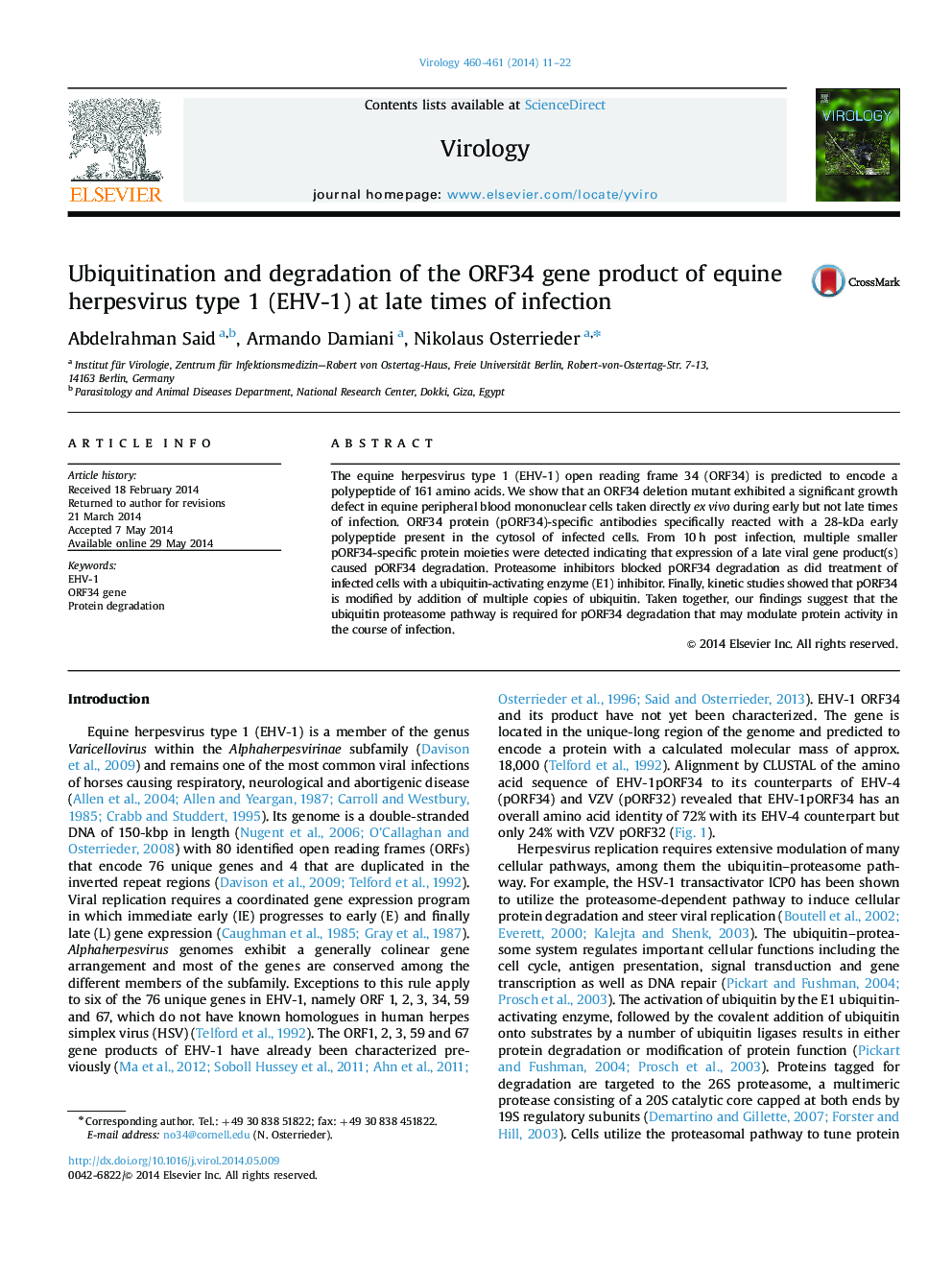| Article ID | Journal | Published Year | Pages | File Type |
|---|---|---|---|---|
| 3424036 | Virology | 2014 | 12 Pages |
•The product of the equine herpesvirus type 1 (EHV-1) ORF34 protein (pORF34) is fully characterized.•The protein is dispensable for replication in cultured cells and target cells taken directly ex vivo.•pORF34 is modified by ubiquitination and degraded in the proteasome at late times of infection.
The equine herpesvirus type 1 (EHV-1) open reading frame 34 (ORF34) is predicted to encode a polypeptide of 161 amino acids. We show that an ORF34 deletion mutant exhibited a significant growth defect in equine peripheral blood mononuclear cells taken directly ex vivo during early but not late times of infection. ORF34 protein (pORF34)-specific antibodies specifically reacted with a 28-kDa early polypeptide present in the cytosol of infected cells. From 10 h post infection, multiple smaller pORF34-specific protein moieties were detected indicating that expression of a late viral gene product(s) caused pORF34 degradation. Proteasome inhibitors blocked pORF34 degradation as did treatment of infected cells with a ubiquitin-activating enzyme (E1) inhibitor. Finally, kinetic studies showed that pORF34 is modified by addition of multiple copies of ubiquitin. Taken together, our findings suggest that the ubiquitin proteasome pathway is required for pORF34 degradation that may modulate protein activity in the course of infection.
